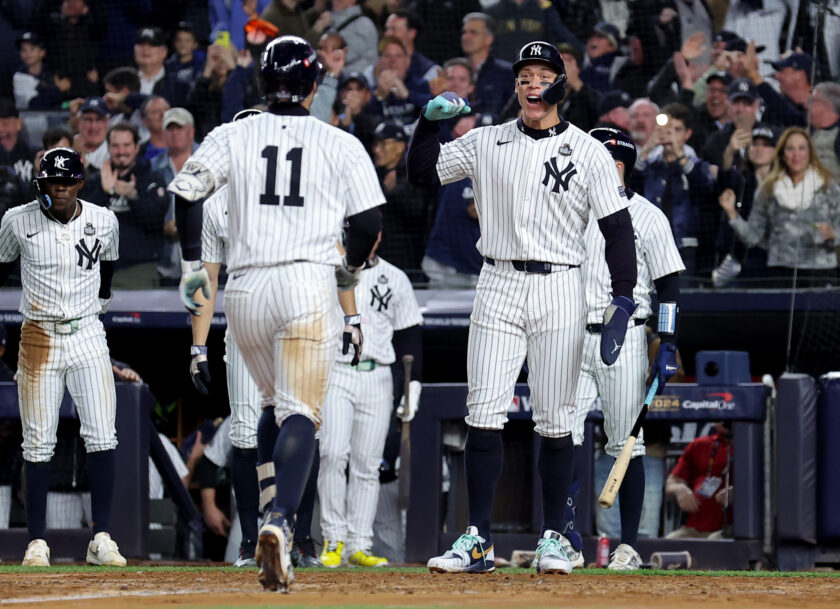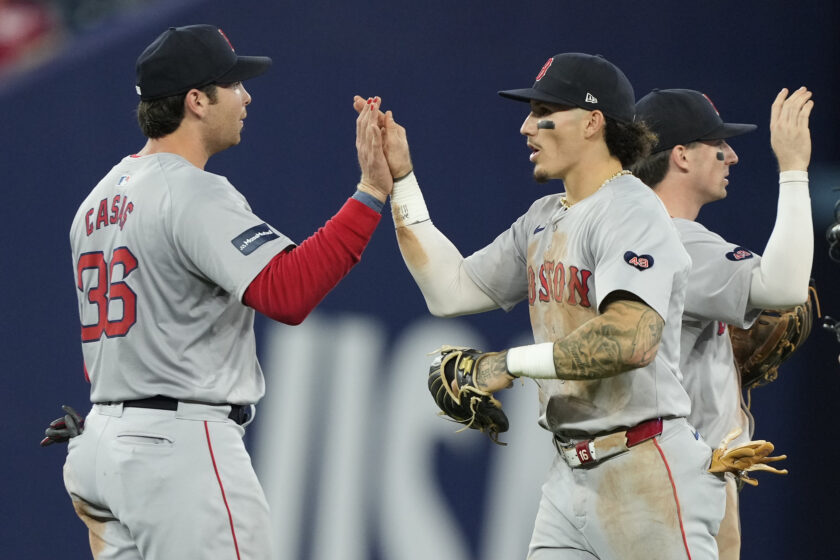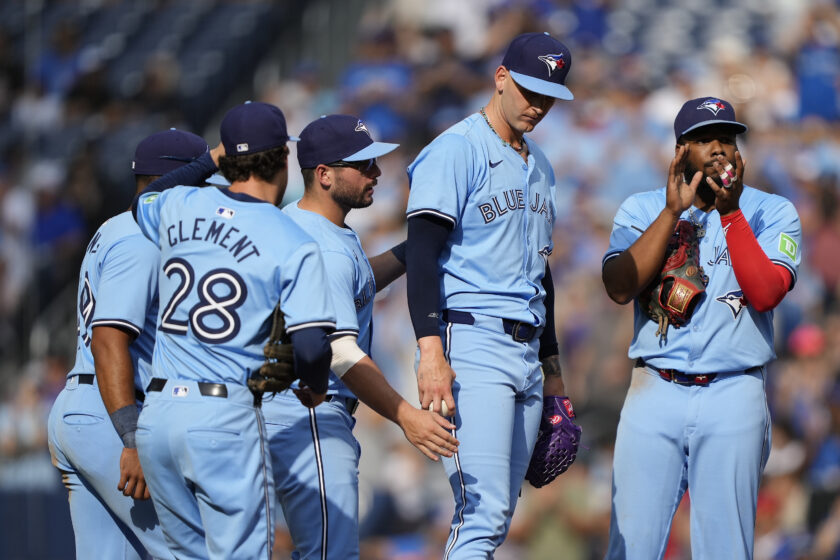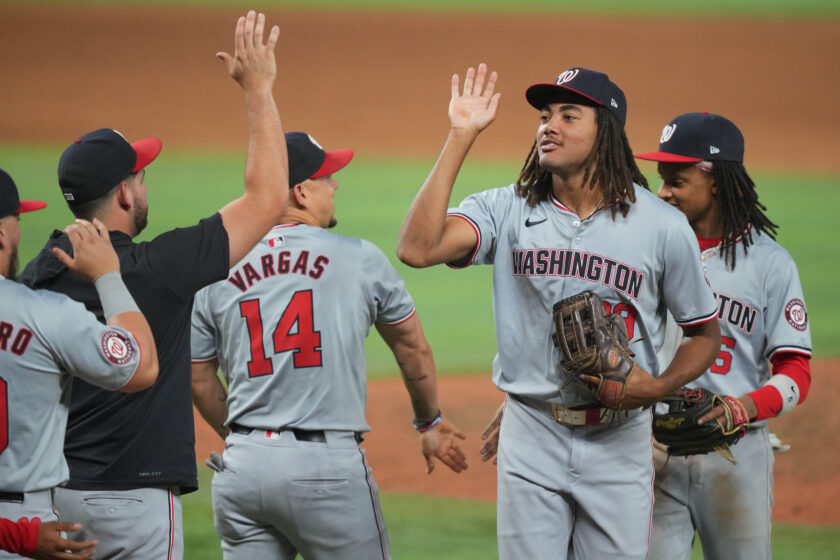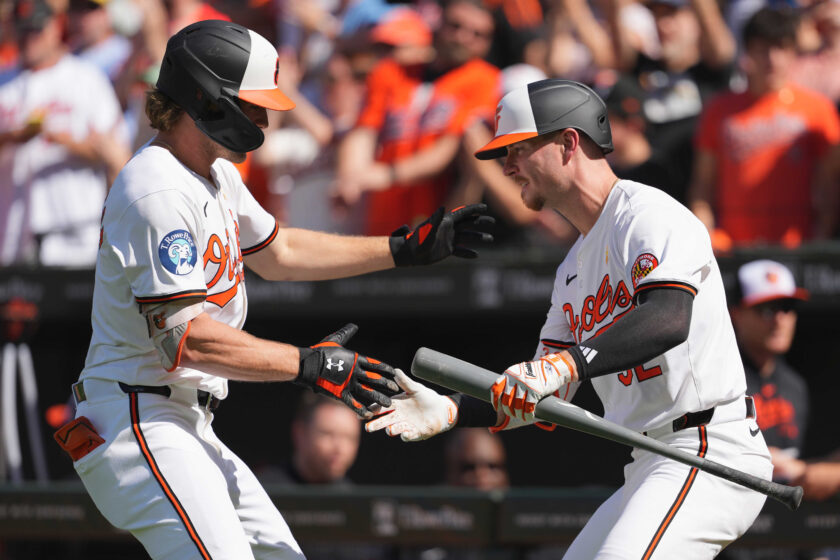A not-so-notable end to the San Jose Sharks-Vegas Golden Knights series
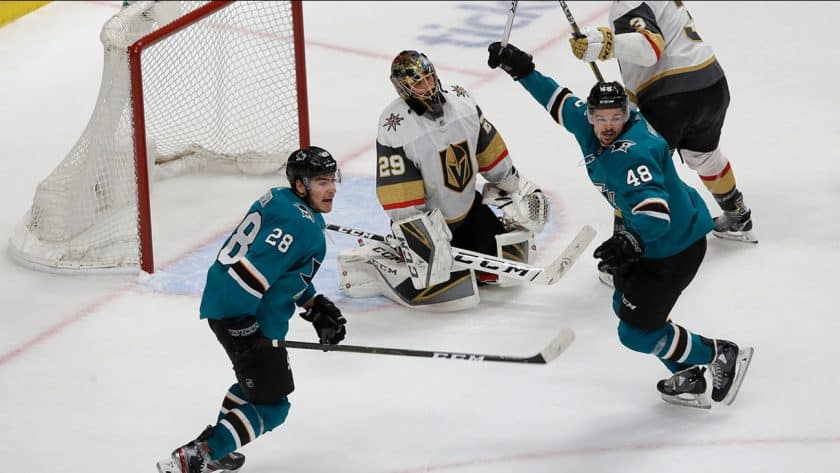
The San Jose Sharks-Vegas Golden Knights playoff series came to a not-so-notable close with incredible controversy thanks to the officials.
[sc name=”Justin Birnbaum Banner” ]As the San Jose Sharks skated to center ice and raised their sticks, the crowd showered their battle-hardened warriors with cheers after a hard-fought overtime victory. Facing a 3-0 deficit in the third period, San Jose rallied back and salvaged their championship quest, defeating the Vegas Golden Knights, 5-4, in Game 7 of the opening round of the Stanley Cup Playoffs.
But did the Sharks truly earn the victory? Their comeback was only spurred by a late, blown penalty call giving San Jose a crucial five-minute power play. If there’s one takeaway from Tuesday’s game, it’s that the NHL needs to expand replay review to five-minute major penalties.
The NHL would benefit from adopting the NBA’s practice of reviewing flagrant fouls and applying it to identifying major and minor penalties. Instead of a snap-judgment, NBA officials use replay to accurately determine the severity and intent of flagrant calls, assigning appropriate punishments. The use of instant replay in the NHL is primarily limited to allowing and disallowing goals. Coaches can challenge for offsides and goaltender interference on scoring plays, while the league’s situation room can initiate reviews to determine if a high stick was used to score or if a puck fully crossed into the net.
However, the NHL’s review policy barely covers penalties.
Near the halfway point of the third period, Vegas’s Cody Eakin cross-checked San Jose’s Joe Pavelski, causing him to fall scarily to the ice. Rather than a two-minute minor, Eakin was assessed a five-minute major and a game misconduct, resulting in an ejection. With five minutes of power-play time, San Jose struck quickly, rattling off four consecutive goals in the span of 4:01.
The NHL rulebook defines a cross-check as “the action of using the shaft of the stick between the two hands to forcefully check an opponent.” The severity of the penalty is at the discretion of the referee and can be influenced by a resulting injury on the play.
[sc name=”NHL Center” ]Replay review shows Eakin committing a fairly standard cross-check, warranting a minor penalty at best. The hit knocked Pavelski off-balance and in his attempt to stay on his feet, he bounced off Vegas forward Paul Stastny and hit the ice hard. Eakin did not demonstrate malicious intent and the fall was an unintended consequence.
Up until this point, the first team to lead had won every game of the series. Right before the officials called the penalty, the Sharks had a 1.19% chance to win the game according to MoneyPuck.com. Eakin’s ejection swung momentum and allowed the Sharks to not only tie the game but eventually win in overtime and advance.
“It’s an f—ing joke. To call five minutes for that? It changed the whole outcome of the game,” said Golden Knights left winger Jonathan Marchessault to ESPN’s Greg Wyshynski. “Like, seriously, what is that? It’s so disappointing. The game’s not even close. It’s 3-0. Call a [two-minute minor]? OK. But a five? For something you don’t even see? You just call the outcome. It’s an f—ing joke. It’s embarrassing. That’s what it is.”
In his post-game comments, Marchessault said the referees did not even see the hit. The officials did not stop play immediately, which could suggest this is true. The severity of Eakin’s penalty may have been a direct result of the visceral image of Pavelski lying motionless and bloodied on the ice.
On Wednesday morning, The Athletic’s Katie Strang spoke to retired NHL referee Kerry Fraser and asked him to review the Eakin check. Fraser, notable for his own officiating blunder where he failed to call a high stick on then-Kings forward Wayne Gretzky, allowing them to advance to the Stanley Cup Finals in 1993, described Pavelski’s fall as an “unfortunate end to a hockey play that happens a bunch.”
And although replay does add a layer of objectivity and could reduce the amount of “unfortunate ends” to plays, it is not perfect. The effectiveness of replay is still dependent on the judgment of the people interpreting it.
However, tempering the human element of officiating is something that’s beneficial to all parties. Human nature makes us prone to error and misperception. Slowing down a game and reviewing the outcome of a specific play improves the chance the right call is made and the outcome is fair. In a situation as obvious as Eakin’s hit, a frame-by-frame replay shows the wrong call was made.
What happened to the Golden Knights cannot be undone. A different call could have allowed them to preserve their 3-0 lead and advance to the next round. However, the discretion of the referee not only deprived Vegas of a fair opportunity to win Game 7 but a chance to return to the Stanley Cup Finals.
[sc name=”Generic Link Next” link=”https://elitesportsny.com/2019/04/25/nhl-stanley-cup-playoffs-what-weve-learned-through-round-1/” text=”What We Learned In The NHL Playoffs Through Round 1″ ]A former disciple of Stan Fischler. IBWAA member. Bylines at Baseball Prospectus Mets, Elite Sports New York, and my own creation: Baseknock MLB. Formerly Amazin' Avenue of SB Nation. Proud UAlbany Alum.

